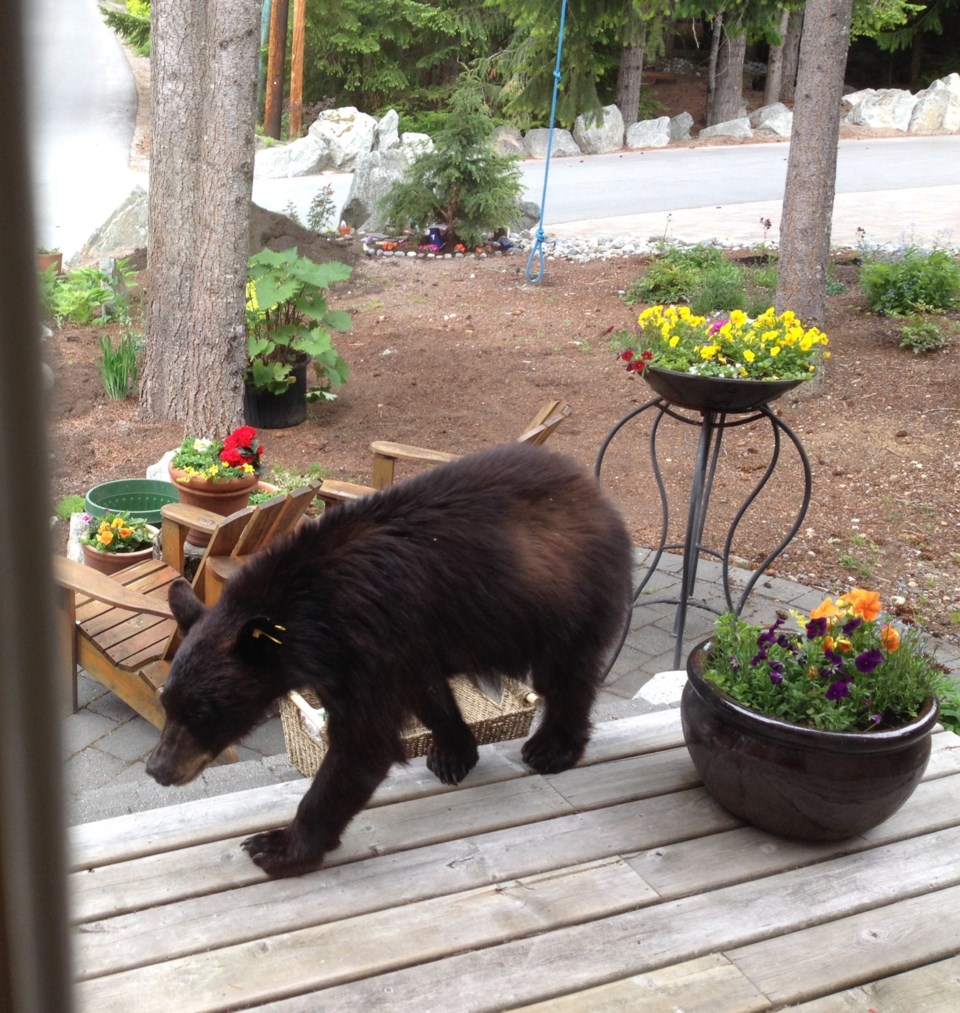A young bear who learned how to access resort homes from its mother was destroyed by conservation officers last week, marking the second bear death of the season in Whistler.
The bear was one of three in a litter born in 2012 to a sow with a knack for accessing occupied residences and non-natural food sources in the Whistler area, according to Sgt. Peter Busink of the Conservation Officer Service (COS).
Only one bear is thought to remain from the original litter, as a male yearling born to the sow was killed in September 2013 after entering a home in Whistler Cay.
"(The sow) had three cubs and immediately started teaching them how to enter residences and that they could get food rewards in and around residences," said Busink, who indicated the sow had been tranquilized in the past as a result of a human-wildlife conflict.
"I was obviously deeply saddened by this event," said Get BearSmart Society executive director Sylvia Dolson, who said she had previously photographed the family in the Alpine area. She believes the young bear that was killed on Thursday, June 12 was a male.
The sow and three cubs were relocated out of Whistler in 2012 to Chance Creek, only to return to the resort last year.
"Normally when we relocate bears to that area, we don't tend to hear from them again," Busink said. "But they returned in 2013, and resumed the same behaviour, and that's getting into occupied residences, up on balconies, trying to access non-natural food sources and showing absolutely zero fear of humans."
The behaviour continued after this winter's hibernation, with the young bear, who became independent from its mother in the fall, accessing several Whistler residences recently, including a home in Alpine on June 9, Busink said.
"For the last month and a half we've been in discussion with the Whistler Bear Working Group and identified that this is a bear that's too high risk to the public in terms of the behaviour it was exhibiting, and told them we were planning on destroying the bear if we were able to get it," he added.
Dolson said she requested the young bear be relocated the day before its death, but the COS said the risk to the public was too high.
"If a bear goes inside an occupied residence, we don't have a lot of choice but to destroy that bear," Busink said.
Cubs who learn risky behaviour from their high-conflict mothers will engage in similar behaviours "close to 100 per cent" of the time, Busink added. Dolson, however, said it's harder to predict which bears will continue to seek out human food sources, citing a 2008 study in the Journal of Mammalogy showing that only half of cubs conditioned to seek out non-natural food from their mothers engage in the same behaviour as adults.
She also believes young male bears are the best candidates for successful relocation because "it's a natural process for them to be dispersed from their mother's natal range" to find their own area to roam.
"Had (the COS) moved this bear into an area perhaps a mountain range away and forced him to find his own home range and his own way away from human food sources, that might've been an option," Dolson added.
Conservation officers have destroyed two bears so far this season. A male bear that had been relocated twice previously due to conflict was killed May 2 after entering a home in White Gold.
Busink estimated human-bear conflicts have been slightly below average so far this season, and reminded people to keep garbage secure, bird feeders out of reach, and barbecues clean. Busink also recommended residents consider replacing lever-style doors with rounded handles to help prevent bears from accessing homes.
To report wildlife sightings, call 877-952-7277.




